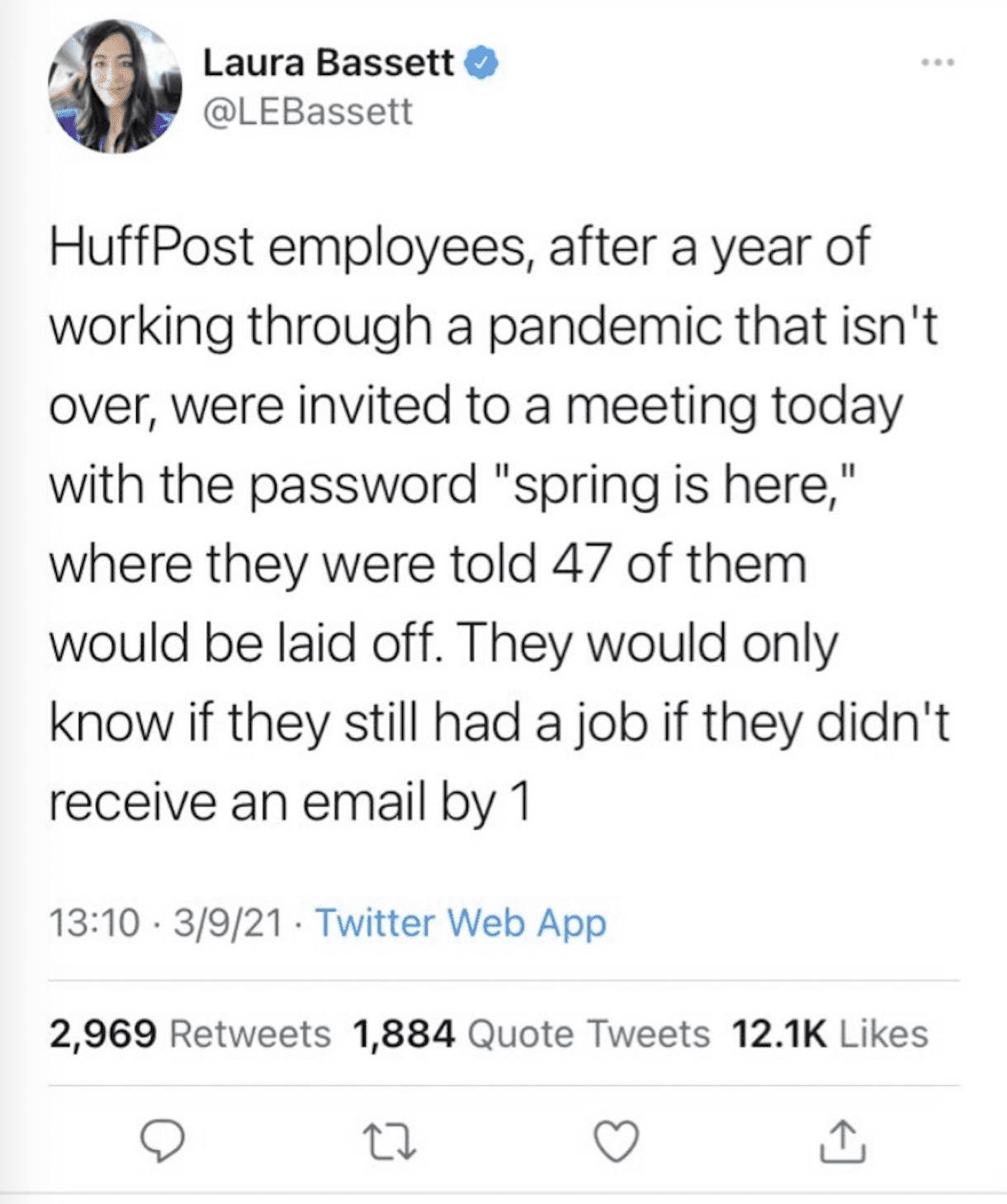Is there any discipline that keeps you more on your toes than Compliance? It has been gripping to observe the compliance function as it has evolved from administering regulatory risk and compliance to now include serving as the ethical and moral guardians of a company. There are, however, still decisions that sit outside of the Compliance function that have the ability to influence how a company is perceived — and the potential to impact its reputation or bottom line.
Take the hiring process, for example. This is an area oft-criticized by job seekers for a lack of common courtesy and respect extended to candidates. It is common for job candidates to progress significantly in a hiring process and then never hear back about whether or not they were ultimately successful in obtaining an offer. If this happens to you, sooner or later you simply come to the conclusion yourself that they have passed on you. Or perhaps you’re told by an excited interviewer that you’re going through to the next round and they request your availability for the next meeting on the spot. But the confirmation of the meeting never comes, and despite all of the promise the role had one minute, you conclude you’ve been ghosted the next. It takes little time to send a pro forma “thanks, but no thanks” message to candidates; the task can even be delegated to a junior person if the hiring manager thinks it’s beneath them. I personally like to engage with those who have expressed an interest in working with me and who have given their time in an interview. And yet some companies don’t consider engaging with a rejected candidate to be a worthy investment of time.
This of course leads to the obvious point that we should also treat existing staff with due respect and courtesy, including outgoing staff. Twitter user Laura Bassett, Senior Culture and Politics reporter at Huffpost, shared an incident March 8 that, if true, leaves a bit to be desired:

If you’re thinking, “That stinks, but that’s what HR is for. What does this have to do with Compliance?” my response would be, what happens when HR gets it wrong? As Lisa Estrada, Senior Vice President and Chief Compliance Officer at LifePoint Health, astutely points out, “There is no second line of defense for HR.” So my view is, sure, if bullying, harassment or some other HR subject matter comes up, indeed HR would be the department I would expect to field that matter. If, however, as in the hiring scenarios above, HR bungles what I suggest should be inherent job responsibilities to treat employees and third party stakeholders with due care and concern, maybe this should be something that compliance officers or another independent function such as Ombudsmen can review. Certainly several companies have Ombudsmen, but it’s not the norm. Too extreme? Perhaps, but in the instances where it could be avoided due to not being jerks to each other, it’s not terribly high an expectation.
Or, consider resort fees at hotels. For those not familiar with them, many hotels routinely add resort fees or destination fees to the nightly room rate. The extra fees allow you to indulge in a selection of add-ons such as pool chairs, bottles of water, food and beverage vouchers, drinks at the bar and so on. The problem is that you still have to pay the fee even if you don’t plan on taking advantage of any of the amenities. I checked in at a hotel where the $40 resort fee included two “free” cocktails and pool chairs. I arrived after the bar had closed and checked out before it would open again the next day. I planned on working so didn’t make use of the pool chairs. I asked the front desk if there could be an alternative benefit provided for the drinks given I couldn’t make use of them during my stay — or could they perhaps waive the fee? As is common, the response was that the fee could not be waived. They were willing to extend me a voucher for one Starbucks coffee instead. That was one expensive caramel frappuccino. Taking easy money and not giving the customer proportionate value in return doesn’t make a company clever — only greedy and disrespectful of customers. I can tell you I don’t have any plans to return to that property.
Here we have decisions where companies could have chosen different avenues and behaviors that many of us would consider to be more in line with “doing the right thing.” I am alive to the realities of being profitable and making commercially sensible decisions. However, it’s questionable whether these outcomes are in fact prudent for the companies or their stakeholders. Christine Porath has studied the detrimental effects of incivility in the workplace and shows that the effects of treating people poorly come at huge concrete costs to a business. Her book, Mastering Civility: a Manifesto for the Workplace, makes a compelling case for respect and dignity between colleagues. Similarly, Tony Hsieh’s Delivering Happiness shows that focusing on customer satisfaction can lead to an overwhelmingly profitable business with staunchly loyal customers. It’s not necessary to nickel and dime customers, and it’s the right thing to do to treat all of your stakeholders as fellow human beings.
The ethics and compliance function helps guide a company with respect to many projects and transactions, but at the end of the day every individual demonstrates ownership of ethics and compliance by the respect we extend to others — and even the smallest business decisions we make. Never has the old ethical adage been more relevant: “Just because you can, doesn’t mean you should.”
What with all of the buzz and ever-increasing reporting expectations around ESG, it’s not outside the realm of possibility that some companies seeking extra credit might just decide that the “niceties” of a company could reasonably fall under the corporate social responsibility commitments of an organization. It remains to be seen whether individual organizations or the United Nations’ Sustainable Development Goals (SDG) will go this far, though if newcomer to the United States airline industry Breeze Airways is any indicator, we just might see that. Founder of startup Breeze, David Neelman, who also founded the popular Jetblue airline, has stated that Breeze will be “the world’s nicest airline.” If this kind of approach is to be adopted across the board by being considered standard or at least best practice, I think it will be quite some time yet, but as we know, nothing accelerates progression like a good public crisis.
Until such goals are formalized in your employer’s world, if ever, it’s worth asking yourself: Does everything you do at work make you proud? If not, what could you do to feel more comfortable looking yourself in the eye each morning as you stare into the mirror? Chances are, taking a bit more time and proactive thought to do right by others or forgoing questionably appropriate short-term gains will lead to a better night’s sleep and just might make for a better long term financial outcome.













